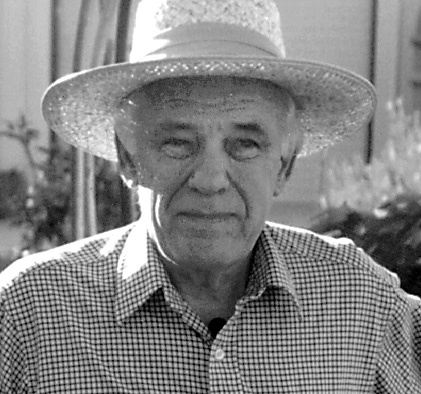AcresUSA: Tractor Time
2018-08
Episodes

Thursday Aug 02, 2018
Thursday Aug 02, 2018
Welcome to Tractor Time, brought to you by Acres U.S.A., the Voice of Eco-Agriculture. I’m your host, Ryan Slabaugh, the GM and publisher of Acres USA.
Last week, I took a trip. I spent about 36 hours in the car driving from Colorado to Illinois, down to Columbia, Missouri, back to Illinois, and back home to Colorado. For a few days while I was in Missouri, I spent time at a sacred ground to us. At the University of Missouri, hidden among the tall brick buildings, is an open space called “Sanborn Field,” run by a guy named Tim Reinbott. You probably recognize the name if you’ve ever been to our conference.
There, Tim has built and preserved what a professor named William Albrecht built there a century ago. Prof. Albrecht started test plots in hopes of showing what happens when you grow corn, continuously without fertilizer or manure, and what that does to the soil. I’ll save you the suspense. It looks terrible. The stalks, miniature compared to the other, more well-fed test plots, were brown and only about two feet tall.
The video’s on our website, ecofarmingdaily.com, if you want to check it out, too. But it’s him talking about how, because Missouri’s soil has natural phosphorous and nitrogen, it wouldn’t take much to regenerate that continuous corn plot. But they aren’t going to do it. It’s too good of a reminder.
It was near these fields that Charles Walters met William Albrecht for the first time. Charles, while trying to piece together the information that would build the foundation for Acres USA’s belief in ecology-based agriculture, found scientists he kept interviewing telling him about Albrecht. Charles being Charles, he did his research and found out Prof. Albrecht was just down the road a couple hours. He called the university, and they told him not to bother. But, again, Charles being Charles, he got in the car anyway and drove to meet the scientist. When he knocked on the door, a voice boomed out, “Don’t knock when you enter and leave the same way.” Charles walked in – and I learned all this from his son, Fred – and when Charles walked in, without even an introduction, said, “You must be from Western Kansas. You have good teeth.”
Albrecht had pioneered research to connect local food to local health. It’s science that more should understand today. He pulled dental records from the military and matched those with the amount of calcium found in the soil and they matched. It’s an incredible study, still available for free on the University of Missouri’s academic research site.
Anyway, the conversation sparked a longtime friendship. Charles would edit more than a dozen volumes of Albrecht’s research, and used that research to develop his stubborn and accurate view of agriculture – that the only way to make money, to make farming a viable job, is to work with nature. He met other Albrecht students like Neal Kinsey, and founded a lifetime friendship – in fact, Neal and Charles may have been Albrecht’s last students.
In Columbia, we heard from more than a dozen farmers and consultants who employ the Albrecht system of growing, and have proven results. Most of them are using the mineralization techniques Albrecht preached – balancing magnesium and calcium – and advancing on that research with biological techniques of composting and manure and the like. Nobody walked away with a question of whether or not the methods lead to results. The irony – was that all this was being presented in Monsanto Auditorium. Their hold on farmers being educated is not lost, but the biological processes we were sharing in its halls were far more important. In a cynical way, it just reinforced why we were all there, and why Sanborn Field down the street is so sacred.
So anyway, all this driving and inspiration got me thinking, that for our next show, we needed to go back in time and dip into our archives, and find a good conversation with Charles Walters. We found one of the last talks of his career, and it was aptly titled, “Then, Today & Tomorrow.” Given in 2006, you will find it’s still relevant today.
Charles passed away a couple years later, so I guess we are in his tomorrow. To all those listening, let’s keep up the good work, keep our food connected to nature, and feel blessed to have those who came before us pave such a clear path ahead.